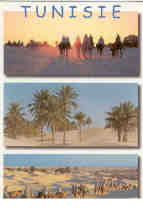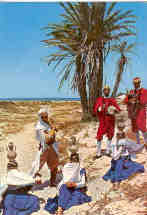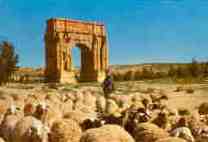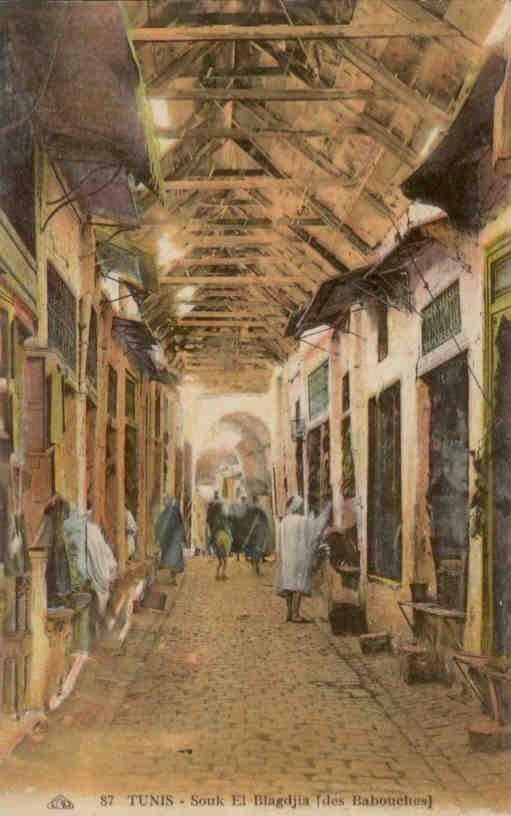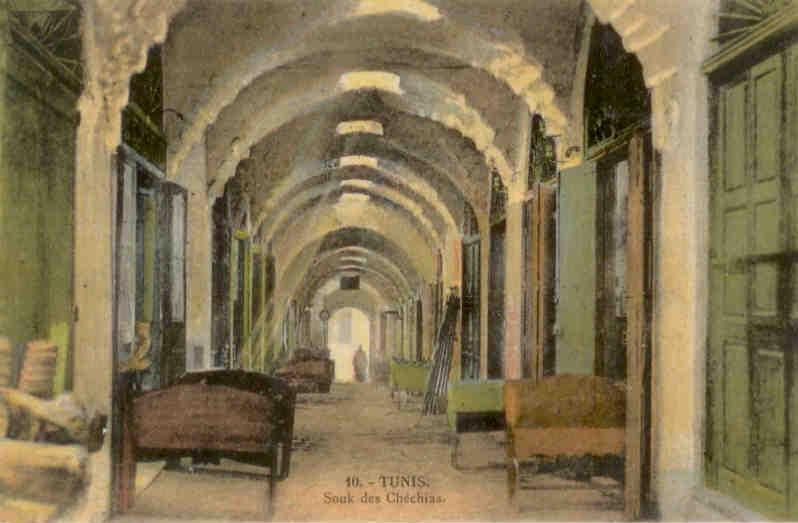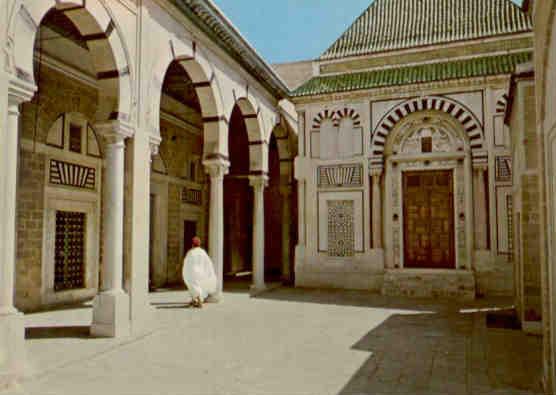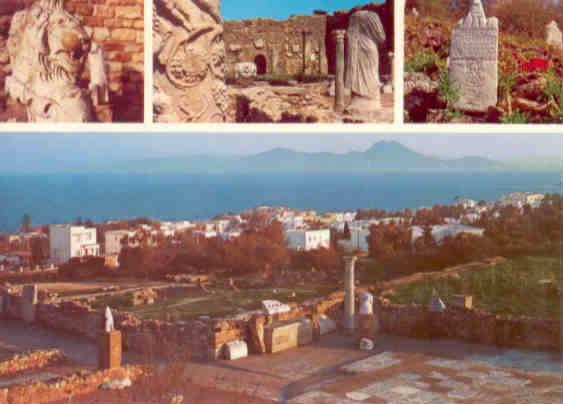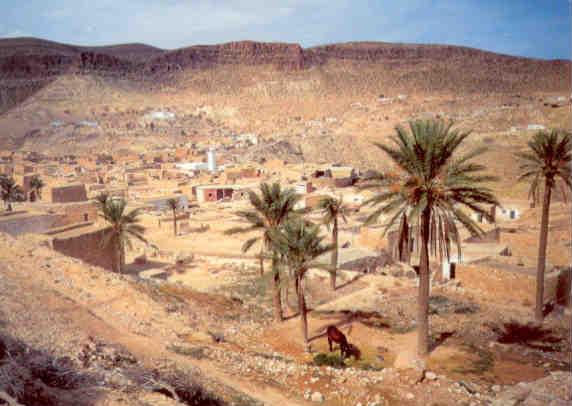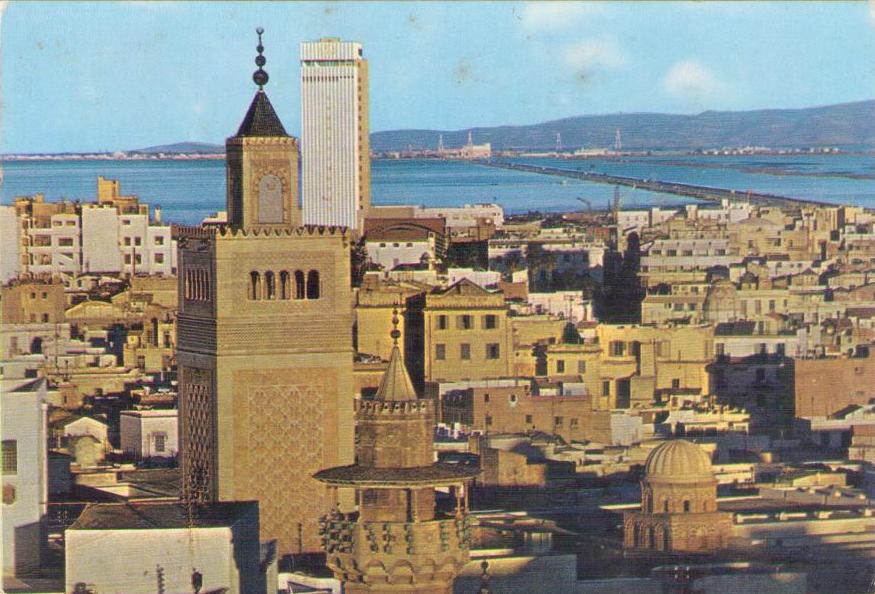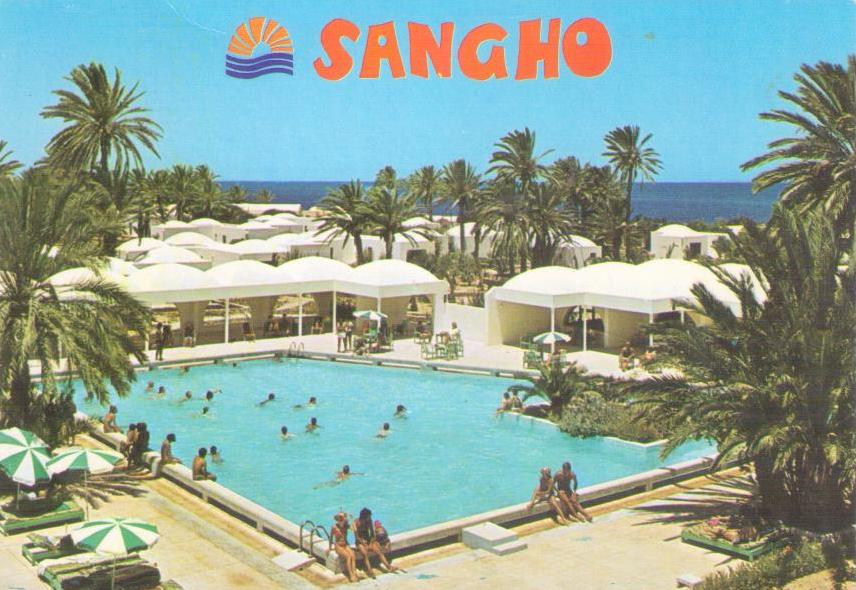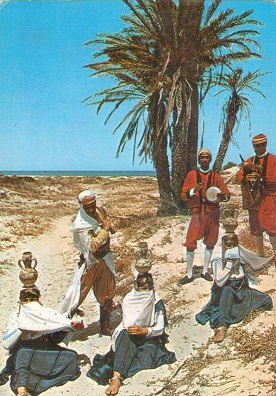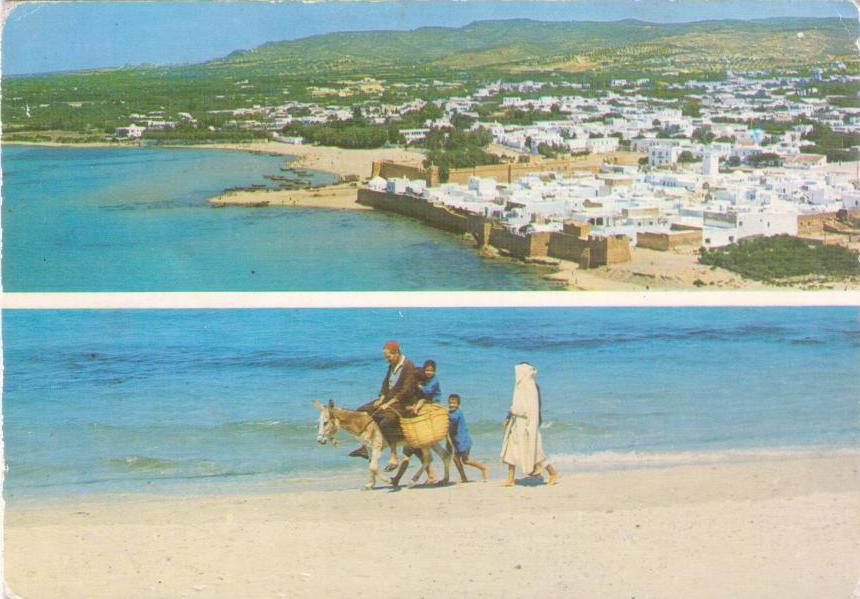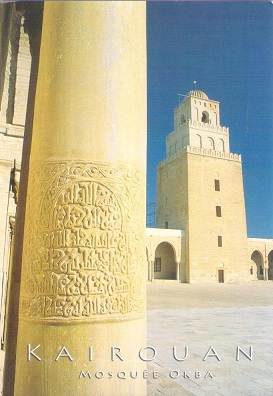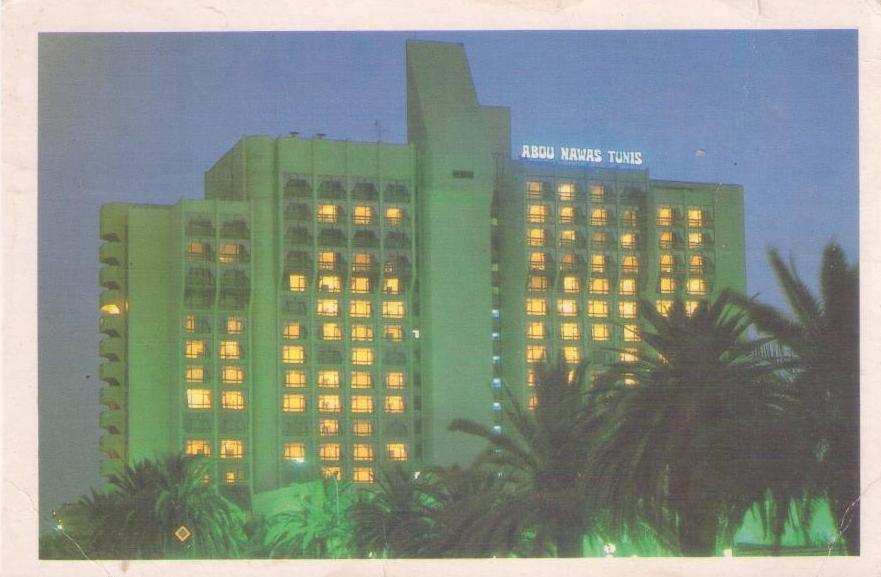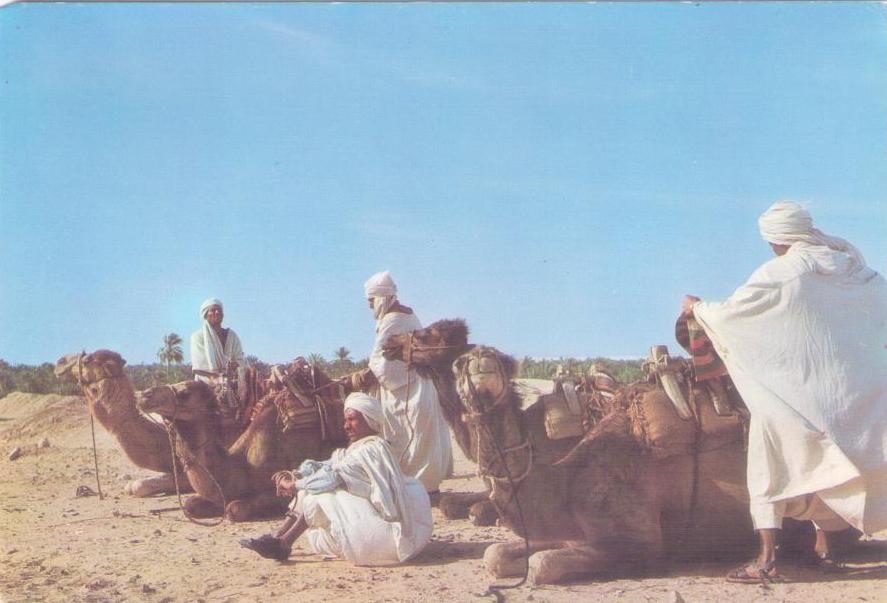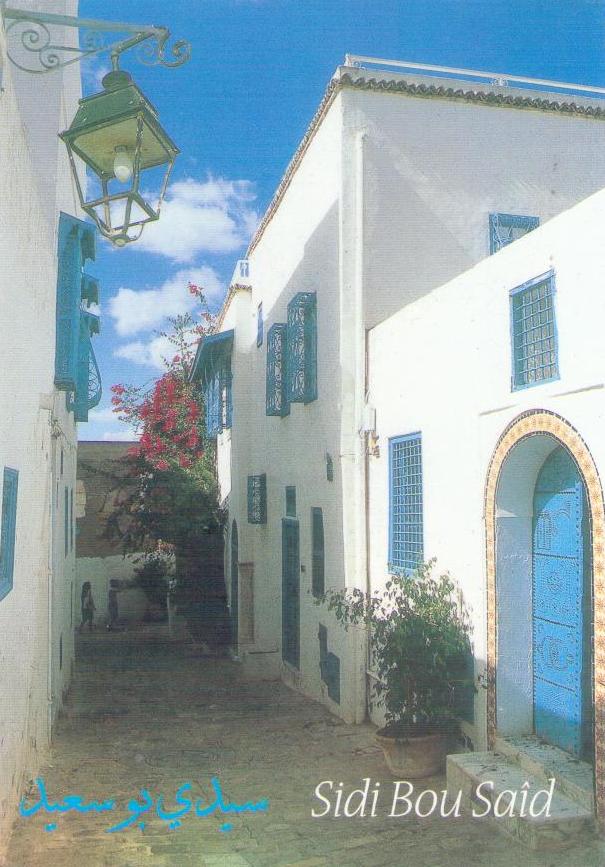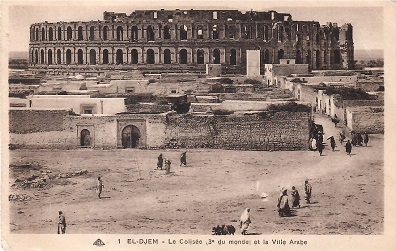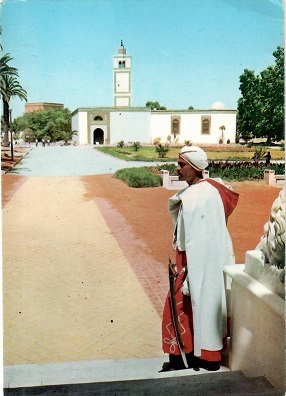-
Tunisie multiple views
Card mailed in 1998, two stamps and legible postmark. Also a red mark on reverse, placed by post office. Card has minor postal creasing on corners. Grade: 2
-
Folklore group
Card was mailed in mid-70s. The stamp is intact but only a tiny bit of postmark is there. Card may have been taped onto something; when tape was removed, some of the message went with it. Front has an abrasion in sky area. Minor edge abrasions. Grade: 4
-
Tunis – Souk El Blagdjia (des Babouches)
Unused. Grade: 2
-
Tunis – Souk des Chechias
Unused. Grade: 2
-
Tunis, Interior of Hamouda Pacha Mosque
Unused, heavily aged card. Grade: 3
-
Carthage, Roman and Punic Ruins
Unused, aging card. Grade: 2
-
Toujane
Unused, slightly aging card. Grade: 1
-
Tunis, Mosquee Zitouna et Hotel Africa
Unused KAHIA card 1648, aging but clean. Hotel Africa still operates, as of this writing, with reviews praising the location and staff. If we were there, we’d give it a try. Grade: 1
-
Zarzis, Hotel Sangho
Editions KAHIA card 353, not postally used but with a rubber-stamped “chop” from a prominent collector on the reverse. As for the hotel, now Sangho Club Zarzis, it gets a few but wildly mixed reviews online. Grade: 3
-
Un groupe folklorique
An old card, not postally used, and with a long message covering the reverse. Grade: 4
-
Hammamet
Old card, not postally used, and with a message in Portuguese covering the entire reverse. Grade: 4
-
Kairouan, Mosquee Okba
Unused MIRAGE card. Grade: 1
-
Tunis, Abou Nawas Hotel
Unused old card, significantly aging and with part of what might have been a hotel “chop” on the reverse caption area. Grade: 3
-
Nefta, Camel – divers (sic)
We’re fairly certain the caption meant “camel drivers”. Unused card captioned in four languages. Grade: 1
-
Sidi Bou Said
Unused. Grade: 1
-
El-Djem, Le Colisee
The Amphitheatre of El Jem could seat 35,000 spectators. Only the Colosseum in Rome (seating about 50,000 spectators) and the ruined theater of Capua were larger. The amphitheater at El Djem was built by the Romans under proconsul Gordian, who was acclaimed emperor at Thysdrus around 238 A.D. and was mainly used for gladiator shows and small-scale chariot races. Until the 17th century, it remained more or less whole but from then on its stones were used for building the nearby village of El Djem and transported to the Great Mosque in Kairouan. Ruins of the amphitheater were declared a World Heritage Site in 1979. And this old, unused sepia card shows how things were more than 100 years ago. Grade: 2

